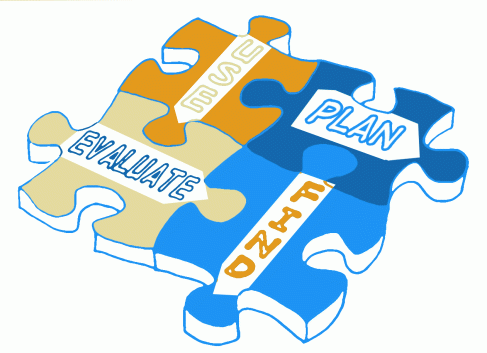Goldsmiths Information Skills Tutorial (GIST) is a new tool created by the library, inspired by the Glasgow School of Art library’s excellent InfosmART project. The main objective of GIST is to guide you through the research process from start to finish and to give you the skills that will make academic research easier. We’ve broken the project down into four key areas; PLAN, FIND, EVALUATE and USE. See below for more detail about each.
GIST is more than just descriptive. It also has a substantial interactive element. Each module has quizzes or games so that you can test what you’ve learned. So soon enough, you’ll be able to demonstrate a knowledge of instructional verbs and what they mean, as well as knowing what constitutes plagiarism.
GIST is a VLE-based project, so you’ll need to access it from the Library pages from the VLE or via this link. Please use your campus log-in details to log-in (e.g. those you use for email). We hope you find it an invaluable resource for your research and that you revisit it often. Please leave feedback if there’s something you particularly like or if there’s something we can improve.
PLAN – this is the first stage of the research process. We’ll discuss why you need information, what your assignment title means, the kinds of information that are available to you and which are most appropriate.
FIND – the next stage will help you find the information you need once you’ve identified it. For instance, we’ll show you how to find various types of information (e.g. books, images, multimedia), how to access both print and electronic journals, how to use databases to find articles, how to design effective search strategies and how to use the Internet.
EVALUATE – in this stage, we’ll explain the importance of evaluating the material you’ve found. We’ll discuss the key criteria you need to consider when evaluating resources, how information is published and how to evaluate unconventional resources (e.g. websites, audiovisual materials).
USE – after the first three stages, you’re almost ready to start writing. However, even though you’ve identified, found and evaluated your information, you still need to use this information properly, according to academic standards. Here, we’ll cover citation and referencing, plagiarism and copyright issues.

Leave a Reply